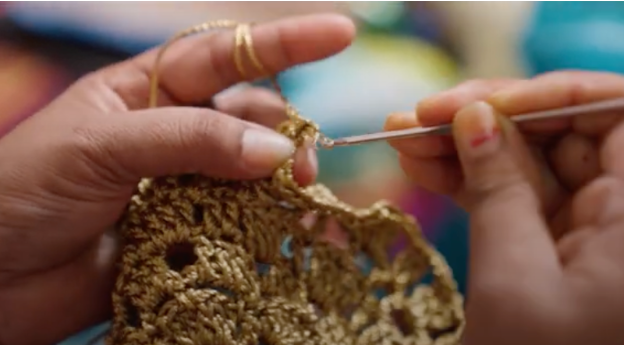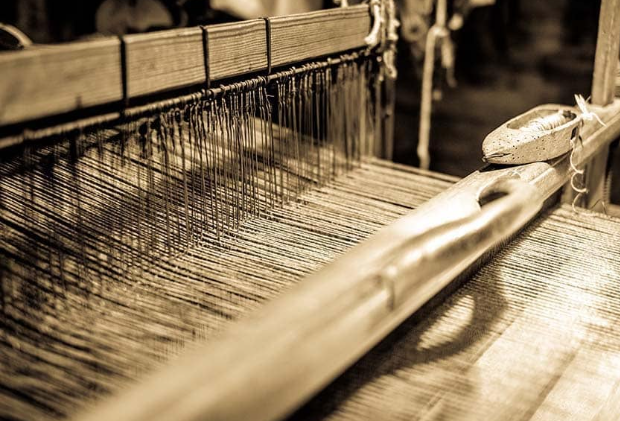Ideas For Creative Manufacturers To Become Carbon Neutral
Nov 01, 2021 | Elijah Adebayo
 The manufacturing sector has a rich history of innovating to overcome persistent challenges. But the twin disruptions of the net-zero transition and the Covid-19 pandemic have made the sector's green efforts paramount to business prosperity. Accounting for more than 60% of direct industrial emissions in the UK, manufacturing is an energy-intensive industry that has been striving for decades to improve energy productivity while reducing greenhouse gas emissions.
From 1990 to 2018, emissions from manufacturing decreased by 56.7 million metric tons of carbon dioxide, and the next decade was shaping up to be a critical period of transformation that would put the sector on the path to net-zero emissions by 2050.
The coronavirus pandemic has proved an untimely and disastrous occurrence. In a period of time where manufacturers were ready to embrace innovation that could radically cut, store and even reuse carbon, short-term attention and financial plans have rightly turned to the tumultuous impact of the pandemic.
Report forecasts suggest that UK manufacturers won’t reach their predicted levels of growth pre-pandemic until 2022. A predicted loss of Gross Value Added (GVA) – which represents the monetary value of UK manufactured products – also looks set to drop by more than £35bn.
The manufacturing sector has a rich history of innovating to overcome persistent challenges. But the twin disruptions of the net-zero transition and the Covid-19 pandemic have made the sector's green efforts paramount to business prosperity. Accounting for more than 60% of direct industrial emissions in the UK, manufacturing is an energy-intensive industry that has been striving for decades to improve energy productivity while reducing greenhouse gas emissions.
From 1990 to 2018, emissions from manufacturing decreased by 56.7 million metric tons of carbon dioxide, and the next decade was shaping up to be a critical period of transformation that would put the sector on the path to net-zero emissions by 2050.
The coronavirus pandemic has proved an untimely and disastrous occurrence. In a period of time where manufacturers were ready to embrace innovation that could radically cut, store and even reuse carbon, short-term attention and financial plans have rightly turned to the tumultuous impact of the pandemic.
Report forecasts suggest that UK manufacturers won’t reach their predicted levels of growth pre-pandemic until 2022. A predicted loss of Gross Value Added (GVA) – which represents the monetary value of UK manufactured products – also looks set to drop by more than £35bn.
edie’s survey of almost 250 sustainability professionals, including those operating in the manufacturing sector outlined the challenges that the coronavirus had caused to the sector, but also the opportunities that the green recovery could bring.
And yet, the sector showed its ingenuity and willingness to assist society during the pandemic. As restrictions on travel were issued across the UK and the rest of the world, many factories were forced into temporary closure, production of certain productions stopped, and many workers were made redundant or placed onto Governmental furlough schemes. But many manufacturers were able to pivot outputs to directly support national efforts to combat the virus. Many UK manufacturers repurposed existing factories, facilities and supply chains to increase the production of personal protective equipment (PPE), medicines and health apparatus to assist key frontline workers and those suffering from the health impacts associated with Covid-19.
The initial response to the coronavirus pandemic has highlight the sectors adaptability, and this trait will be key if manufacturers are to play their part in helping the global transition to net-zero emissions. innocent’s 'digital' factory
In November 2019, innocent Drinks made a commitment to be carbon neutral by 2030, with an intermittent ambition to reduce 10,000 tons of CO2e from the business by 2023. In response to this ambition, the company is aiming to unveil its first carbon-neutral factory in the Port of Rotterdam called ‘the blender’.
The blender will rely on digital technology, provided by Atos, to streamline production lines, deliver in-depth data gathering and analytics on power usage, and offer new ways for the manufacturer to monitor energy consumption, even from the firm’s London headquarters.
Additionally, the blender will integrate innocent’s manufacturing network from relying on multiple producers to blend and bottle, to consolidating its operations. As such, innocent aims to reduce the number of road miles travelled by approximately 25% and cut its carbon footprint by 10%.
Ibstock’s net-zero pilot
Brick manufacturer Ibstock has announced plans to pilot at least one net-zero factory, with the company outlining its intention to set a net-zero carbon goal for its operations in the near future.
The net-zero pilot, which is yet to specify a date or site location, was unveiled in the company’s latest sustainability report. This year’s report highlights progress made against the company’s Sustainability Roadmap 2025 which was launched in 2018.
The company has outlined reducing embodied carbon, reducing energy use, procuring renewable energy and offsetting unavoidable emissions as steps to help achieve the net-zero ambition. These will help inform and shape a wider net-zero commitment.
The pilot will build on Ibstock’s strong progress to decarbonize through innovation. Ibstock’s solar park – the first of its kind in the brick industry – at the Group’s Leicestershire head office, for example, will provide up to 30% of the site’s power requirement. Electric vehicle (EV) infrastructure and charging stations have also been introduced at six sites as Ibstock meticulously plans its route to net-zero, rather than setting the ambition first.
Microsoft goes beyond net-zero
At the start of the year, Microsoft unveiled a bold new plan to reduce its carbon impact to below net-zero by 2030, with an additional goal of removing carbon from the atmosphere that the company has emitted since it was founded in 1975.
Microsoft will reduce its emission by more than 50% across its entire business and supply chain by 2030 while investing to remove more carbon than it emits annually. Microsoft claims that this results in a carbon-negative impact as a business.
Microsoft’s new targets are being backed with a $1bn funding pot, which will be allocated to supply chain partners wishing to invest in carbon reduction. A framework regarding how grants from the $1bn pot will be distributed is yet to be finalized and is set for completion within two years. While this work takes place, Microsoft will invest in projects which enable the collection of accurate, detailed and comparable data regarding Scope 3 emissions across its supply chain.
The company also plans to capture one million metric tonnes of carbon from the environment by the end of the fiscal year. The firm has issued a request for proposal to source the carbon removal from a mix of nature-based and tech-based solutions.
Unilever’s regenerative supply chain
On the subject of supply chains, Unilever’s approach to net-zero features a headline commitment to end its contribution to deforestation.
Unilever unveiled a new set of sustainability commitments in June, pledging to end its contribution to deforestation, promote regenerative agriculture, transition to biodegradable ingredients and reach net-zero emissions for products by 2039 - all supported by a new €1bn Climate and Nature fund.
Having already set science-based targets to eliminate carbon emissions from its operations and to halve the greenhouse gas (GHG) emissions across its products and value chain by 2030, Unilever has now pledged to reach net-zero emissions for products by 2039. Net-zero emissions will account for the sourcing of the materials used, up to the point of sale for products.
Accompanying the net-zero commitment is a new €1bn Climate & Nature Fund that will be used over the next decade to introduce projects across its brand portfolio that will focus on land restoration, reforestation, carbon sequestration, wildlife protection and water preservation.
The net-zero commitment will see Unilever build and prioritise partnerships with suppliers that have set or committed to their own science-based targets. Unilever will also work with farmers and smallholders on regenerative agriculture programmes that restore forests, improve biodiversity and enhance soil.
Rolls Royce to spur net-zero transport
Also announced in June, manufacturing giant Rolls-Royce confirmed plans to become a net-zero carbon business by 2030, alongside a wider ambition to enable sectors it sells to in becoming net-zero by 2050.
The manufacturer will set out a roadmap to net-zero later this year, but plans to use 100% renewable energy, promote closed-loop manufacturing and deploying microgrids to help reach the ambition.
Additionally, Rolls-Royce will use it technological developments and product portfolio to assist other sectors in reaching net-zero emissions. This includes carbon-intensive sectors such as shipping, aviation and power generation.
This commitment is already taking shape. Rolls-Royce recently restarted work to develop low-emission aircraft engines at its facilities in Derby after the UK’s Covid-19 lockdown. The firm has created a demonstrator engine that pre-mixes fuel and air prior to ignition, a process which purports to deliver lower NOx and particulate emissions. It is now working to validate the technology’s emissions performance and optimise its software and performance. The system is known as ALECSys, short for Advanced Low-emissions Combustion System.
In time, Rolls-Royce is hoping to bring an engine that offers fuel savings of 25% or more to the market.
Interface’s carbon love
Late last year, global carpet manufacturer and sustainability leader Interface revealed that it had achieved the environmental ambitions of its Mission Zero strategy one year ahead of its 2020 timeframe.
The strategy focused on reducing impact in three key areas of the business: factories, products and suppliers. Over the last 25 years, Interface has recorded a 69% reduction in the carbon footprint of carpet tile products, a 96% reduction in greenhouse gas (GHG) emissions globally, sourced 89% renewable energy and 100% renewable electricity globally, reduced water use per unit of production by 89% globally and recorded a 92% reduction in waste to landfill across the global business.
Interface is now forging ahead with its Climate Take Back strategy, which is also filled to the brim with moonshot goals. It focuses on “bringing carbon home and reversing climate change", transforming dispersed materials into “products and goodness” and creating supply chains that benefit all life and “factories that are like forests”. Last year, Interface committed to becoming carbon negative by 2040.
One of the key messages of the new strategy is to “live zero and love carbon”, noting businesses should aim for zero negative impact on the environment and to “stop seeing carbon as the enemy, and start using it as a resource”.
Interface has joined a growing list of businesses that are urging companies to stop "demonising" carbon, instead treating it as a valuable raw material that can enhance product specifications and cut key environmental footprints if treated correctly. The company believes that innovative and radical businesses could seek to harness carbon as a building block of the future, which in turn could deliver transformational sustainability action plans.
Prototypes have already been developed and improved to deliver “carbon-negative” flooring tiles, meaning that atmospheric emissions are actually reduced after the manufacturing process.
Mission Possible: Achieving a green recovery for manufacturing
Mission Possible campaign has evolved to focus on the green recovery, with a new series of reports outlining the challenges that businesses in key sectors face in relation to the coronavirus pandemic, and the opportunities that the green recovery will bring. First up, manufacturing.
As part of a brand-new Mission Possible: Green Recovery campaign – which supports sustainability, energy and CSR professionals on our collective mission to drive a green recovery across all major industries in the UK – this latest series of reports will explore why a green recovery is so important for the respective industries being analysed; what a green recovery actually looks like for businesses large and small within those industries; and how sustainability and energy professionals can drive a green recovery from within.
Recommended








